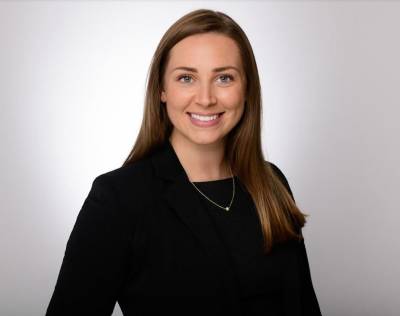Recent Blog Posts
Wisconsin Laws Meant to Protect Against Bicycle Accidents
After a long, cold winter, many Wisconsin residents who enjoy riding bicycles are happy to be able to hit the road as the weather warms up during the spring and summer. Riding a bike on the open road can be an exhilarating experience, and it can provide great exercise while serving as an efficient method of transportation. Unfortunately, it can also be dangerous. While bicyclists take many measures to stay safe, including by wearing helmets and other safety equipment, making sure their bikes are well-maintained, and following the rules of the road, they may be placed at risk of serious harm through no fault of their own. When sharing the roads with motor vehicles, bicyclists can be seriously affected by the negligent or aggressive actions of drivers, and these actions may lead to severe or fatal bicycle accidents.
Violations That May Lead to Bike Accidents
To protect the safety of bicyclists and ensure that everyone can share the road, the state of Wisconsin has implemented a number of laws that drivers of motor vehicles are required to follow. These include:
How Are Professional Practices Addressed During a Couple’s Divorce?
A couple that plans to get a divorce will need to address multiple types of assets during the property division process. While the division of some types of property may be fairly straightforward, determining to handle complex assets can often be a complicated process. This is especially true in cases where a couple owns a professional practice. After putting in so much time and effort to become a licensed professional and establish a practice, a person may be concerned about how their divorce will affect the ownership and operation of this type of business. If both spouses were involved in managing and operating a practice, they may be unsure about how to proceed during and after the end of their marriage. Since issues related to professional practices can become very complicated, a spouse can protect their rights and interests by working with an experienced divorce attorney.
Wisconsin Claims Board Rules in Favor of Man Who Was Wrongfully Convicted and Imprisoned for Decades
 By Nicole Masnica, and Ray Dall’Osto
By Nicole Masnica, and Ray Dall’Osto
The criminal justice system is meant to provide everyone who is accused of a crime with the opportunity for a fair trial, and not to convict the innocent. Unfortunately, this does not always happen, and far too many criminal defense cases are over-charged and a significant number result in wrongful convictions. In recognition of this, the State of Wisconsin allows those who have been wrongfully convicted to pursue compensation for the ways their lives have been affected by serving prison sentences for crimes that they did not commit. The lawyers at Gimbel, Reilly, Guerin & Brown, LLP, LLP recently helped one of our clients, who was wrongfully convicted, secure a significant award recommendation from the Wisconsin State Claims Board, which is significantly greater than the statutory maximum currently allowed.
What Are the Most Common Causes of Rollover Accidents?
Motor vehicle accidents come in many different forms. They may involve one car or multiple vehicles, they may take place at high or low speeds, and they may be caused by multiple factors. Rollover accidents can be some of the most dangerous collisions, and when a vehicle turns over onto its side or roof, the driver or passengers can suffer multiple types of serious injuries. By understanding the reasons why these accidents occur, victims can determine who was responsible, and they may be able to pursue financial compensation for their injuries and damages.
Reasons Why Rollover Crashes Occur
A car, truck, or other vehicle may turn over because of:
-
Driver error - Many single-vehicle rollover accidents take place because a driver failed to drive safely. For example, if a driver is traveling much higher than the speed limit, their vehicle may roll over when they attempt to make a tight turn. Drivers may also lose control due to factors such as distracted driving, causing them to strike guardrails or other objects that cause their vehicle to turn over. In addition to causing injuries for the driver, these accidents may result in harm to passengers, or a vehicle may strike other cars, pedestrians, or bicyclists after rolling over.
Is a Restraining Order Required After a Domestic Violence Arrest?
There are multiple different types of situations where a person may be accused of committing domestic abuse. These incidents are taken very seriously by law enforcement. If police officers are called to respond to domestic disputes or other situations where the safety of family members may be at risk, they may choose to arrest a person who is believed to have engaged in domestic violence. Those who are accused of committing these types of sensitive crimes may face criminal charges for battery or similar offenses. However, they will also need to understand when they may be subject to restraining orders or other limitations that will affect their lives and their relationships with their family members.
Arrests in Domestic Abuse Cases
While police officers in Wisconsin are not required to arrest a person after responding to a domestic violence incident, there are certain circumstances where officers may determine that an arrest is necessary. Generally, if an officer has a valid reason to believe that a person has violated the law by engaging in domestic abuse, they are required to perform an arrest if they reasonably believe that continued abuse is likely, if there is evidence that an alleged victim has suffered a physical injury, or if the alleged abuser is the primary aggressor in a domestic argument or disagreement.
What Do Divorcing Parents Need to Include in a Parenting Plan?

Details Addressed in a Proposed Parenting Plan
If a couple will be participating in divorce mediation, each party will be required to submit a proposed parenting plan to the mediator at least 10 days before their first mediation session. If spouses are unable to reach an agreement through mediation, or if the court waives their mediation requirements, the parents will be required to submit proposed parenting plans to the court. These submissions must be made within 60 days after the mediator informs the court that the couple could not reach an agreement or after the date the mediation requirement was waived. If a parent does not submit a proposed plan, they will not be able to contest the plan submitted by the other parent.
When Can Money Laundering Result in State or Federal Criminal Charges?
When law enforcement officials perform investigations into criminal activity, they will often “follow the money.” If a person is found in possession of significant amounts of cash, makes large deposits into a bank account, or otherwise receives large sums of money without a good explanation, this may be seen as an indication that they have engaged in crimes such as drug trafficking. At the same time, it is illegal to take measures to conceal the source of money that was obtained illegally, and there are a variety of actions that may lead to money laundering charges. These charges may be pursued at either the state or the federal level, and those who are charged with this type of offense will need to understand the specific laws that address money laundering.
Who Can Be at Fault for Truck Accidents in Wisconsin?
The State of Wisconsin has a high volume of trucks traveling its roads and highways every day. The size and weight of these trucks can often result in devastating accidents for other vehicles, bicyclists, or pedestrians involved in a crash. In recent years in Wisconsin, there has been an average of over 7,500 large truck crashes per year. These crashes resulted in an annual average of over 2,000 injuries and 70 deaths. Even minor collisions with trucks can result in personal injuries, leading to medical bills, time off of work, and pain and suffering.
The trucking industry and the drivers they employ must follow strict state and federal regulations for both the overall condition and the operation of their trucks to protect other vehicles on the roads. However, with the increased emphasis on just-in-time deliveries, violations can occur. Each truck accident can have multiple parties who may ultimately bear responsibility for the accident, including the truck driver, the carrier, or the warehouse that loaded the truck.
How Long Will Spousal Support Be Paid After a Wisconsin Divorce?
Getting a divorce will affect the finances of both parties in multiple ways. Spouses will usually need to make significant changes to their living arrangements, lifestyles, and other aspects of their lives as they determine how they will be able to cover their ongoing expenses on a single income rather than sharing two incomes. While these adjustments may be difficult but necessary when both spouses earn similar incomes, there are some cases where one party may struggle to address their ongoing needs. If one spouse was a family’s primary income earner, the other spouse may need assistance as they establish a new life for themselves and determine how to cover their living expenses. In these cases, spousal maintenance (also known as alimony or spousal support) may be appropriate, and spouses will need to understand how the amount of support will be determined and how long payments may last.
Wrongful Death Claims from Fatal Motorcycle Accidents in Milwaukee, Wisconsin
Motorcyclists contend with many safety challenges. Driving in the open air among trucks, passenger-sized vehicles, and fellow motorcyclists can be precarious. Additionally, motorcyclists are vulnerable to fluctuations in weather, visibility, and road pavement, such as potholes. On average, motorcyclists are 29 times more likely to die in an accident than those in a passenger vehicle. Of the 2,104 motorcycle crashes in Wisconsin during 2020, there were 112 fatalities.
Families of those who have perished in a motorcycle accident may bring a wrongful death claim for monetary compensation (“damages”). Awarded damages are for the loss of potential income from the deceased as well as medical and funeral expenses for the deceased. Emotional trauma incurred from the catastrophic event is also taken into account when awarding damages. The statute of limitations for wrongful death lawsuits resulting from a motor vehicle in the state of Wisconsin is two years after the accident occurs. So, there are crucial time constraints to consider.

 By:
By:  By:
By:  By:
By: 





